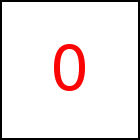depth Library Method
Short Description: Set or Animate Depth of Object
Signature: t.depth (d[,d1])
Group: Shape
Class: transition Class
Defines the depth of the animated object. For amimating 2D objects the depth vector is (almost) irrelevant,
because 2D objects do not have a depth. More precisely for taccgl™ a 2D object is just the front face
of a 3D box, which does however not make a big difference because all the other faces
of the 3D box are invisible. Just rotateMiddle takes the depth into
account when calculating the middle to rotate around. For displaying e.g. a 3D box the gives the
distance from the top, left, front point of the object to the top, left, back
point of the object.
If d and d1 are specified this creates an animation starting with depth d
and growing/shrinking to d1. If d is not given (e.g. null) the animation start
with the default/current depth.
The depth method sets the size of the depth vector
and keeps its direction. It may be useful to use dV
or dVTo beforehand to set the direction. Initially the
default depth vector is (0,0,0). Then the depth method
sets the vector(s) to (0,0,d) or (0,0,d1).
Examples
var a=taccgl.actor("testimg"); a.depth(500).start(); | RUN |
var a=taccgl.actor("testimg"); a.rotateMiddle(1,0,0).start(); | RUN |
var a=taccgl.actor("testimg"); a.depth(500).rotateMiddle(1,0,0).start(); | RUN |
dV or dVTo should not be used after depth.
WebGL™ is a trademark of the Khronos Group Inc.
| 






